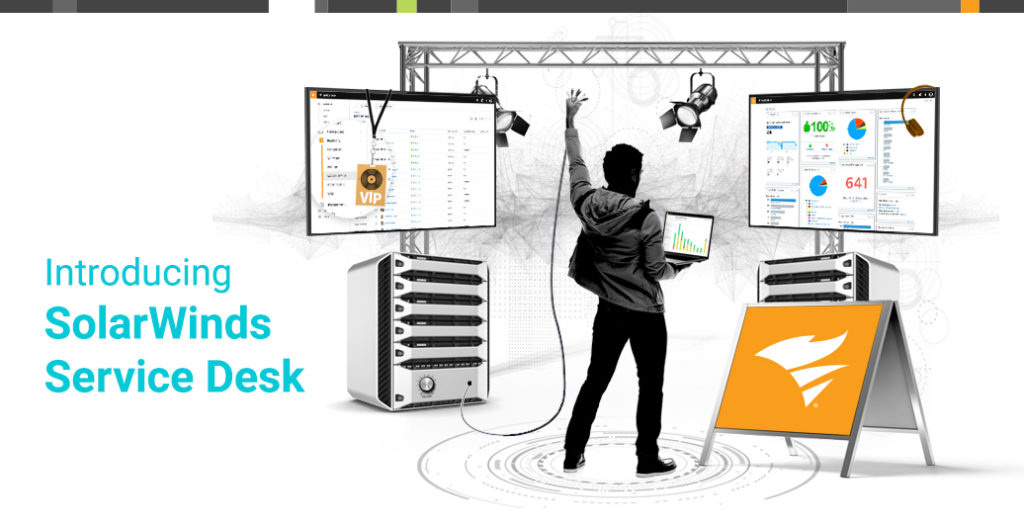A service desk professional is usually required to have a significant amount of knowledge about the IT industry, strong technical skills, and a wide range of experiences that demonstrate those skills. But among all of the hard skills needed to do the job, there are necessary skills beyond the technical know-how that are just as important.
Matt Cox, senior director, technical operations, ITSM at SolarWinds is highly-skilled in recognizing some of the best service desk pros. Here’s what he had to say about the key soft skills today’s IT professionals should have.
Q: Why are strong verbal and written communication skills crucial for a service desk pro?
Cox: Of the wide spectrum of things that can exist in IT and technical fields and the demand to learn technologies, communication holds just as much weight. IT pros don’t just talk to other IT pros; they’re talking to customers, cross-functional teams, and other business stakeholders. Good communication is taking the mastery of any of those domains within IT and being able to relay the message in a clear and concise way.
Given the prevalence of email and growing popularity of live chat for support, written communication skills are also extremely valuable. We aren’t just talking to people on the phone or through video conferencing services. How well can a candidate convey both the necessary solution and a customer-friendly attitude through digital communication? These are all things to take into account as a hiring manager for service desk professionals.
Q: What kinds of questions do you ask that signify a candidate knows how to think critically?
Cox: Questions I like to ask include:
- What’s the last thing you took apart and what happened?
- What’s your favorite piece of technology and why?
- Given this [example critical issue], how would you handle it?
Questions should be challenging and thought-provoking. You want the interviewee to leave thinking deeply about their responses. They need to be a critical thinker, but also have the ability to get creative with a challenging task or conversation. They need to be able to wrap their head around tough concepts and at the same time hopefully have fun with it. How they answer these questions will give you a glimpse both into their ability to think critically and the personality that they can bring to your team. Did they get flustered with what they took apart? Did they light up when they started to talk about their favorite piece of technology? How a person thinks critically, then executes, goes hand in hand with their personality.
Q: What shows that a service desk pro has a good work ethic?
Cox: They ask questions, offer suggestions, and take extra time out to learn the business they’re in. Everything won’t always be smooth sailing, but a service desk pro with an open mind and willingness to try new things is invaluable. I’ve worked with some pros who aren’t willing to test the waters and I’ve worked with others who ask what they can do in addition to their standard duties. The latter person usually makes more of an impression and is more successful in their role.
They actively seek out an understanding of what the goals are and what success looks like in the company. And, when that understanding is established, and if they’re continuously given the tools to be successful, the work ethic shows for itself.
Q: What personality traits are ideal in a team setting?
Cox: Collaboration and courtesy are closely related. There has to be a level of respect between service desk pros, their colleagues, and their customers. It’s also good for pros to develop relationships with teammates ahead of high demand times in the business. This creates a better working relationship and helps them understand their team’s working style.
Part of working hard is being willing to work with others. Collaboration is vital because you won’t resolve every issue in one touch, and sometimes you’ll need to work with others who have knowledge in different areas. You may need to connect your customer with the resources beyond the ones in your own head.
IT pros will work across different teams to address challenges, brainstorm new ideas for the business, and solve problems, so being polite and having a positive attitude goes a long way.
Q: Is flexibility another valuable soft skill in your opinion?
Cox: It definitely is. IT pros should expect to wear multiple hats, regardless if the team is large or small. Depending on business needs, roles may fluctuate and more tasks may be distributed across team members. An open mindset empowers service desk pros to take on new tasks and demonstrate flexibility.
In my experience, the people who are flexible to take on new challenges, step up where the group needs help, and show a willingness to learn—these are the folks who reach their career goals quickly.
One of the reasons I have such a passion for the IT service desk is because so many IT pros start there, or work there at some point. You're exposed to so many areas of IT and so many areas of the business. It's a great place to work on both your technical skills and your people skills.




